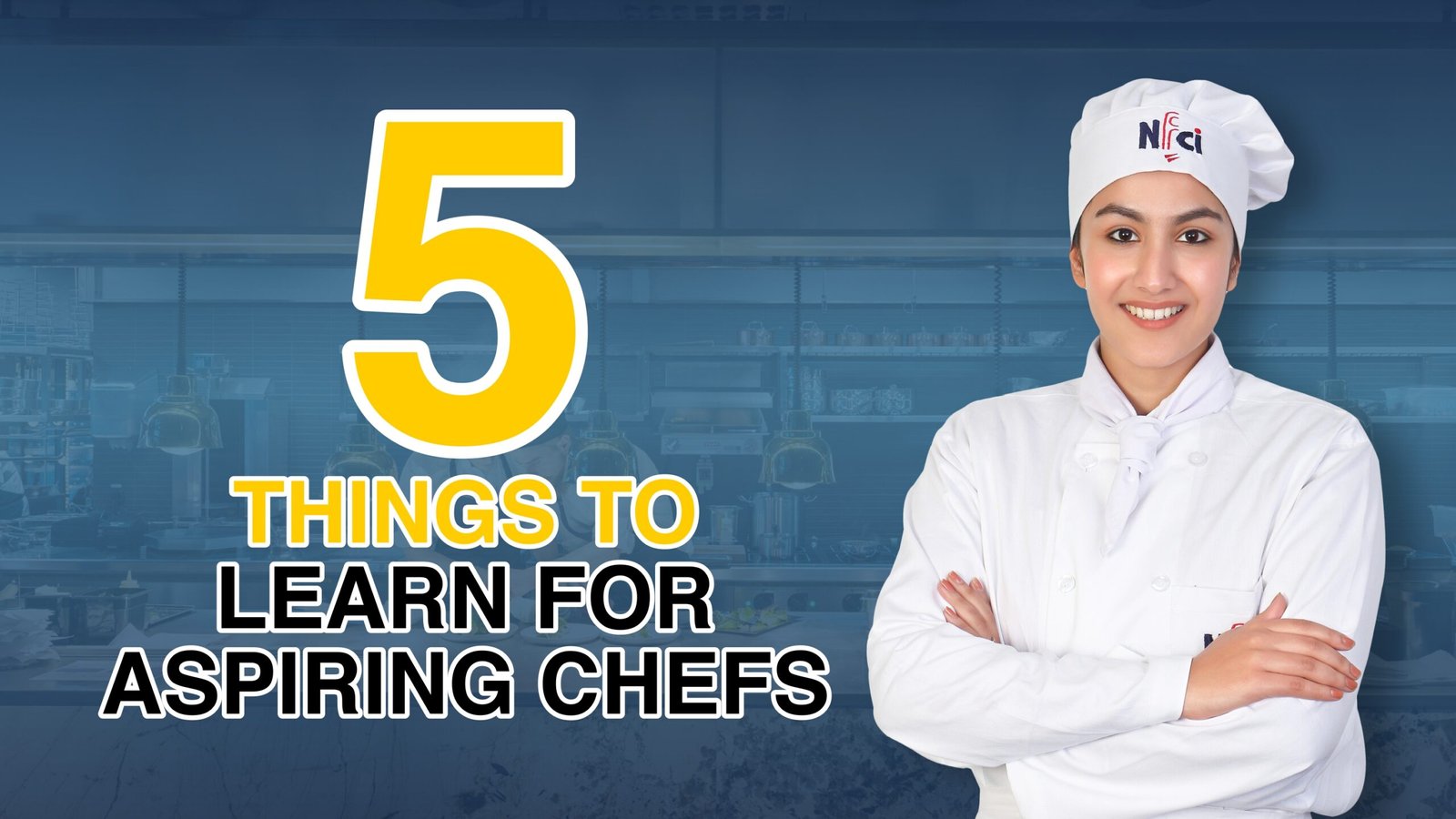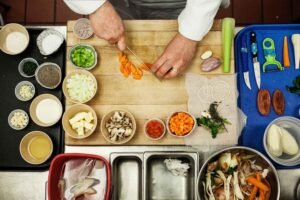
5 Things to Learn From ‘The National Culinary Challenge’ for Aspiring Chefs
NFCI organized “The National Culinary Challenge” for students as a cooking competition. NCC event becomes inspiration for students and platform to represent cooking skills and get recognized. This event become a great platform for Aspiring Chef. 
“If a cook makes a mistake, he covers it with some sauce and says it is a new recipe.” – Paul Bocuse.
Do you find inspiration in food or have a deep passion for cooking? The love for food has always been deeply ingrained in Indian culture. India is blessed with vast gems of herbs, recipes, and the secrets of cooking techniques. Food styles and cooking methods vary from region to region based on climate and culture. As an aspiring chef, your personality and communication are as important as your recipe. Here are five key lessons for aspiring chefs from the NCC-24 (The National Culinary Challenge) organized by NFCI to learn, which will prepare you to win and distinguish yourself from other participants.
5 Things to Learn From ‘The National Culinary Challenge‘:
Maintaining Emotional and Mental Balance 
The National Culinary Challenge makes students mentally and emotionally prepare for upcoming event, global challenges, competition, etc. Being a chef, it is tough to maintain balance while the clock is ticking. Your hands work tirelessly like an automatic machine, focusing on timely preparation and precise measurement of ingredients. If you aim to be a successful chef, the process of practicing can be physically, mentally, and emotionally draining. Repeatedly practicing your dish, much like training for a sport, can significantly improve your ability to remember each step.
Chef Depends Upon Senses While Cooking 
As the old saying goes, “you can determine the saltiness by smelling the aroma of the cooking food”. Spend enough time in the kitchen to utilize all your senses while cooking. For example, the sizzling sound of cooking gives you clues. Touching will give you a sense of perfectly cooked food. Sight ensures the right time to flip or remove from heat and assures that all herbs are perfectly blended. Our sense of smell is 80% responsible for what we taste. It is best if you rely on your senses more and gradually improve your skills through experience in cooking.
Chef must Know The Food Better 
Participating in National Culinary Challenge helps students to understand The Food Better. Throughout the cooking process, every second is scrutinized by the judges. Ultimately, your dish should impress the judges. Be prepared to explain the inspiration behind your dish and how you developed its flavour profile. A chef must know the origin of the recipe and the motivation behind that particular dish. You can even explain the traditional cooking and eating techniques, as well as the conventional methods of making the same dish with the current fusion of flavours.
Chef, prepare Beforehand & Be Flexible 
National Culinary Challenge helps Budding Chefs to know the changing method, cooking, flexibility according to challenges in competition event. Ensure ingredients are prepared beforehand. Ensure that all equipment, such as your induction stove, is functioning correctly and that your utensils are clean. Bring your own knives, tools, utensils, and personal items that you are familiar and comfortable with. Follow your plan, but be adaptable to any changes or challenges.
Presentation and Plating
National Culinary Challenge helps students to know about best way of  plating and presentation with Chef’s and other students. Your plating should complement the style of your cooking. Strive for a balanced presentation with thoughtful, decorative, and edible garnishes. Presentation and plating are the art of cooking, just like music or dancing. A chef is recognized through the presentation first, then the taste. To achieve this, take a moment to relax, observe your surroundings, learn from other aspiring chefs, and develop your unique style.
plating and presentation with Chef’s and other students. Your plating should complement the style of your cooking. Strive for a balanced presentation with thoughtful, decorative, and edible garnishes. Presentation and plating are the art of cooking, just like music or dancing. A chef is recognized through the presentation first, then the taste. To achieve this, take a moment to relax, observe your surroundings, learn from other aspiring chefs, and develop your unique style.
Cooking involves precise chemistry to achieve the desired outcomes. Chemical reactions occur while cooking through manipulation or emulsification. Heat brings out natural flavours in food. For example, conduction heat is passed directly from the pan to the food.
Commonly used metals in the kitchen include Aluminium, which reacts chemically to acids in foods and will discolour light-coloured sauces if stirred with a metal spoon or whip; Anodized Aluminium, which resists acids, will not discolour food, and is less porous; Copper, one of the best conductors of heat, is often lined with tin or stainless steel; Stainless Steel, which will not react to acids or discolour sauces, is commonly used for food holding and storage; and Non-Stick Cookware, which prevents food from sticking to the pan and is considered safe and non-toxic at cooking temperatures below 660°F/350°C. 
When presenting your dish to judges, ensure that a chef’s clothes or apron are stainless and clean. It’s essential to make a good impression not only with your dish but also with your appearance and presentation. NFCI institute holds the best reputation due to its practical-oriented learning. Our highly experienced teachers provide industry tours and ensure 100% placement with reputable brands, not only in India but also internationally.
Tag:best hotel management institute in India, Chef Challenge, Chef competition, Cooking Competition, Culinary Challenge, Hotel management and Culinary Institute, hotel management college, hotel management school, National Competition, National Cooking Competition, National Culinary Challenge, NCC Competition, NFCI





